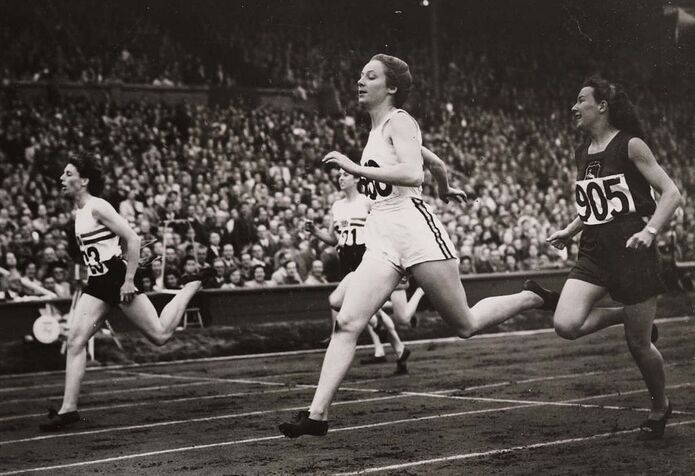|
By S. Lawrence Bueno WHERE IT ALL BEGAN AND WHERE WOMEN STAND IN THE PRESENT DAYS WITHIN SPORTS
The Ancient Greeks unveiled formal sports to the world with the first Olympic Games in 776 BC, including tournaments such as foot and chariot races, boxing, jumping, along with discus and javelin throwing. Women who were married were not eligible to compete in or watch the ancient Olympic Games. On the other hand, unmarried women were permitted to attend. It could be argued only unmarried women were allowed as the stadium was considered an appropriate site for women to find their future husbands. It was society’s great pride and joy for a woman to marry a man; love was of little significance. Moreover, the priestess of Demeter, the goddess of fertility, was given a remarkable spot next to the stadium altar. Evidently, the priestess was a single woman who was in need of a husband. She was most likely given an important spot in the stadium as fertility was considered a key feature for marriage, as the man and woman were expected to reproduce and raise children of their own due to society’s high demands. Additionally, the goddess is given higher privileges as she serves as a role model, an example other women should aspire to become. The aforementioned sees eye to eye with the well-known, nonetheless, appalling concept that women are “baby machines”. That is to say that a woman's duty throughout the ancient Olympic times was to serve their husbands, the heads of the family, to own a traditional lifestyle. It is evident women were considered a man’s property; objects. The fertility goddess' explicit exposure in the stadium further emphasizes what men should expect from their spouses. Even so, women forever changed sports history in the 19th century when their sporting journey began. The first Olympic Games in which female contestants competed was held in Paris in 1900. As a member of the winning team in the first 1-2 ton sailing event on May 22nd of that year, Hélène de Pourtalès of Switzerland became the first woman to compete in the Olympic Games and the first female Olympic champion. Life cycles are the events that occur from birth to death. Life cycles are also considered revolutions as you can adapt your mindset to concede with the present days. And in this aspect, many women had to move a little further on their cycles to progress into a more independent version of themselves, learning how to live and love without a man, steadily understanding that they are capable of so much more. Once that step of the cycle is complete, the revolution begins, and more women are influenced by others. Correlatedly, you don’t have to die to rebirth. It’s all about spiritual recognition and being conscious of what you would like to change. At this point, women began to evolve, slowly but surely. They began to adapt their mindset. It’s all part of their life cycles. The 19th century was a year of revolution that unleashed new beginnings for women generations to follow. We’ve still got a long path to overcome until we achieve an ultimate state of equality. However, we must acknowledge individuals who attempt to stand up against society while manifesting their beliefs for justice. Without people like Hélène de Pourtalès, women wouldn’t be where they are today.
0 Comments
Leave a Reply. |
Archives
June 2024
|


 RSS Feed
RSS Feed